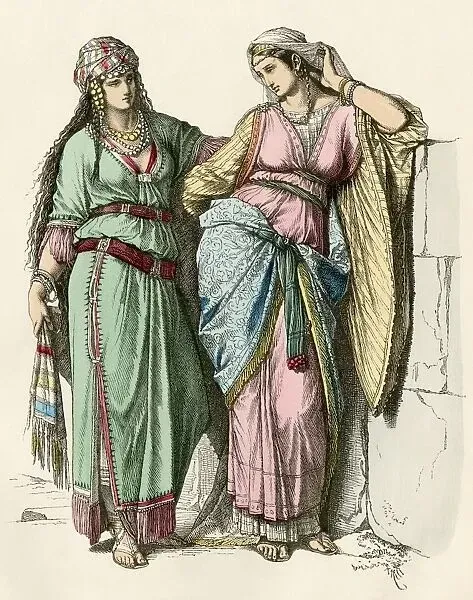Beauty instead of Branding—forking over the cauls, wimples, and crisping pins
After teaching one full school year as a new mom, I retired (for the first time) at the age of 27.
We found ourselves downsizing to just half of what we were living in and with. By 2014 I was in full swing domesticated mode with a toddler and a newborn. It just so happens that during those years a cultural shift emerged in mothering.
Physical beauty was still important, but it truly only came second to health and specifically, natural health/wellness. I suppose a lot had to do with the pressure the 90s and 00s carried regarding legalism and behaviorism. If I just looked the part then everything was fine. Purity culture was rampant when I was an emerging tween, conditioning me to command my physical body whilst ignoring my desires, impulses, and natures of anything that would taint me permanently.
In the end of that era, it seemed like tomfoolery emerged as the sharpest tool to wield as I graduated into my 20s.
But instead of finding my real substance in Christ, I just pivoted to another point of idolatry, another branding. I guess it was supposed to be different because the culture was finally getting to what really mattered. . . the inside of a person! Only, somewhere along the way the heart got bypassed and the focus headed for the lymphatic, digestive, and neurological systems.
Quicker than Zeus could throw a lightning bolt from Olympus, all those purity culture victims became medical experts overnight, with self-titled credentials on their blogs to prove it. Some of the favorite past times: analyzing labels, avoiding the “dirty dozen” and adhering to the “clean 15,” cloth diapers, and all the homemade everything.
Like a bucket with holes
Inherently, there is something striking with putting full weight behind domesticity and natural wellness. Likewise, training for a marathon with a strict schedule and diet in view is pleasing. Composing an entire orchestra into an emotional symphony, telling of the rise and fall of an empire is gorgeous.
However—there is something unsightly with making any of these into your identity because then it becomes about you and not about pleasing the Lord or those you serve.
Consider:
“For even the Son of Man came not to be served but to serve, and to give his life as a ransom for many” (Mark 10:45 ESV).
“And whatever you do, in word or deed, do everything in the name of the Lord Jesus, giving thanks to God the Father through him” (Colossians 3:17).
“Truly, truly, I say to you, unless a grain of wheat falls into the earth and dies, it remains alone; but if it dies, it bears much fruit. Whoever loves his life loses it, and whoever hates his life in this world will keep it for eternal life” (John 12:24-25).
I’m using this domestic anecdote as a case study, but we can make an identity out of anything under the sun. Any job, hobby, skill set, abundance or scarcity tied to us can consume to where we adopt it as the main character of our stories.
We think this may be rather harmless because in the end, I’m still a Christian. It may start as a nuanced misdirection from solely claiming Christ and no other, but it certainly won’t end there because everything else is like putting water in a bucket with holes in it.
It will never, ever fill up. We see this with King Solomon and his wives; Nebuchadnezzar and his power; Ananias and Saphira and their money; King Henry VIII and his legacy; and Kanye West with his fame.
Or consider the Israelite women of the 6th century BC.
A different kind of branding
In Isaiah chapter 3 we see God bringing judgment on Jerusalem’s women because of their pride. But they have no pride in accomplishments, for likely they have nothing meritorious to show for themselves. The KJV relays it this way:
“In that day the Lord will take away the bravery of their tinkling ornaments about their feet, and their cauls, and their round tires like the moon, the chains, and the bracelets, and the mufflers, the bonnets, and the ornaments of the legs, and the headbands, and the tablets, and the earrings, the rings, and nose jewels, the changeable suits of apparel, and the mantles, and the wimples, and the crisping pins, the glasses, and the fine linen, and the hoods, and the vails” (Isaiah 3:18–23).
We don’t wear half those things anymore, but we can translate that to all fineries: jewelry and whatever else we decorate ourselves with. Their pride is in their appearance and their “beauty.” And the Lord deals to them what they actually look like when He sees them: rottenness, baldness, sackcloth. . . branding instead of beauty (3:24).
Their antics of self-worth resulted in slavery—and they had no marketing giants or algorithms plotting what their eyes would behold in a day to contend with.
This sin of perfectionism quickly feeds into comparison—women typically care what other women think of them more so. But there are deeper implications than just not taking too much stock in what we look like. Whereas that’s Truth, there was something much deeper going on for the Israelite women. They aimed at defining themselves by a standard that doesn’t even crest sea level.
Their worldview
This quest for personal greatness did not just affect how much time they spent in front of a mirror. This affected their entire worldview.
Take these 3 simple worldview questions:
Is there a God—if so, what is He like?
What is the nature of man?
What is the cause of evil and suffering?
For a woman who is more concerned with her headbands and wimples, she places herself at the center of these answers. This is what all people do when they are devoid of God, yes I consent to that. However, if her daily objective is to appear to be the most dignified-looking woman in the room then she will consume and meditate on just that, which means her heart, mind, and motivations are all self-serving. If she is a Godward thinking creature, even those thoughts revolve around how God best serves her.
So, when asked what God is like, she will give answers like kind, generous, beautiful, and forgiving. These are completely true, but they also serve her and disregard the sanctification that is necessary for Christ followers: holy, just, loving.
Likewise, her response to the nature of man is made in God’s image, yet neglecting the part where we are enemies of God in need of a Savior. Because that’s not a cute Truth.
Now—the cause of evil and suffering is likely to be one of victimhood. She could blame culture, social media, and Satan himself, all the while ignoring question #2 and the inevitable culpability that follows.
Anyone who emphasizes what they look like, what others think, and a dominating view of how life affects them has a sick heart, a low view of God, and a bonafide identity crisis on their hands.
What then?
The solution is not asceticism. It’s not silence. It’s not apathy. It’s not poverty. Jesus never said we couldn’t be great and do great things—He just paved a road contra to our nature. Matthew 20 and Mark 10 both tell us that in order for us to be great and first, we have to become servants to others.
Surely this is nothing new for you.
But this is where our roles in life go askew.
Israel had many heart issues, and all of them began with believing the lie that has been circulating since Eden—God is not who He says He is. Meaning, He is not sufficient. Meaning, we must supplement with whatever brings us the most immediate relief with nothing eternal in view.
I regret to say that every issue we have comes down to believing lies about our God which translate into lies about ourselves and our identity. We settle for the branding of world’s okayest mom, Mama Bear, artisan sourdough baker, Crossfitter, NYTimes Bestseller, graduate, captain, GOAT or insert about a million others.
Psalm 139:5 says, “You hem me in, behind and before, and lay your hand upon me” (ESV). King James says, “Thou hast beset me behind and before”—so whether you are hemmed or besetted, submit to it. In reading the rest of Psalm 139 you’ll see it’s part of your design.
The real beauty of our identity should be that of Christ, wholly and solely; otherwise you are choosing to be branded, not beautiful.
Worshiper, wife, mom—with the help of the Lord, this is my hierarchy of work. Beyond this I homeschool the girls and hold down a staff position at Zionsville Fellowship in Zionsville, Indiana. I read, write, do yoga, cook, and practice thinking pure and lovely things.






